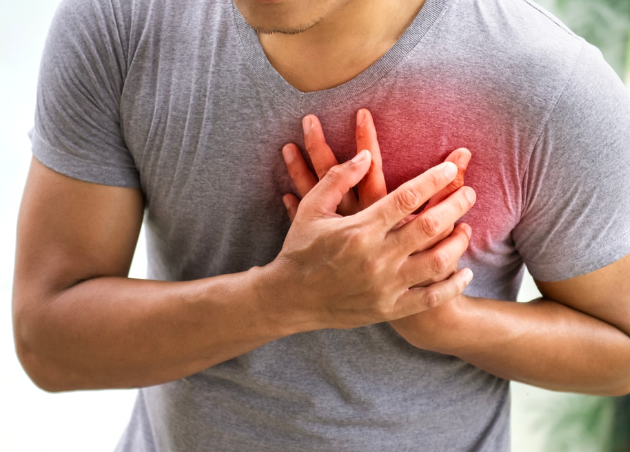
A heart attack, or myocardial infarction, is a medical emergency that requires prompt attention. Knowing the symptoms can be crucial for seeking immediate medical help. Here are the common signs of a heart attack:
Chest Discomfort:
Uncomfortable pressure, fullness, squeezing, or pain in the center of the chest that lasts more than a few minutes or comes and goes. It can feel like an uncomfortable sensation, heaviness, or tightness.

Pain or Discomfort in the Upper Body:
This can include pain or discomfort in one or both arms, the back, neck, jaw, or stomach.
Shortness of Breath:
Feeling breathless or experiencing difficulty breathing can be a sign of a heart attack. This might occur with or without chest discomfort.
Cold Sweat:
Profuse sweating, often described as cold sweats, can accompany a heart attack.
Nausea or Vomiting:
Feeling nauseous or vomiting may be a symptom, particularly in combination with other signs.

Dizziness or Lightheadedness:
Feeling lightheaded or dizzy, as if you might faint, can occur during a heart attack.
Extreme Fatigue:
Sudden and extreme fatigue, weakness, or unexplained tiredness can be a warning sign.
It’s important to note that symptoms can vary between individuals, and not everyone experiencing a heart attack will have the same signs. Some people, especially women, may experience atypical symptoms such as discomfort in the jaw, and upper back, or shortness of breath without chest pain.
If you or someone else experiences these symptoms, it’s crucial to call emergency services immediately. Prompt medical attention can significantly improve the chances of survival and reduce damage to the heart muscle. It’s always better to seek medical help and have a professional determine the cause of symptoms, even if they turn out not to be related to a heart attack.



